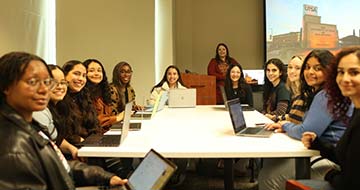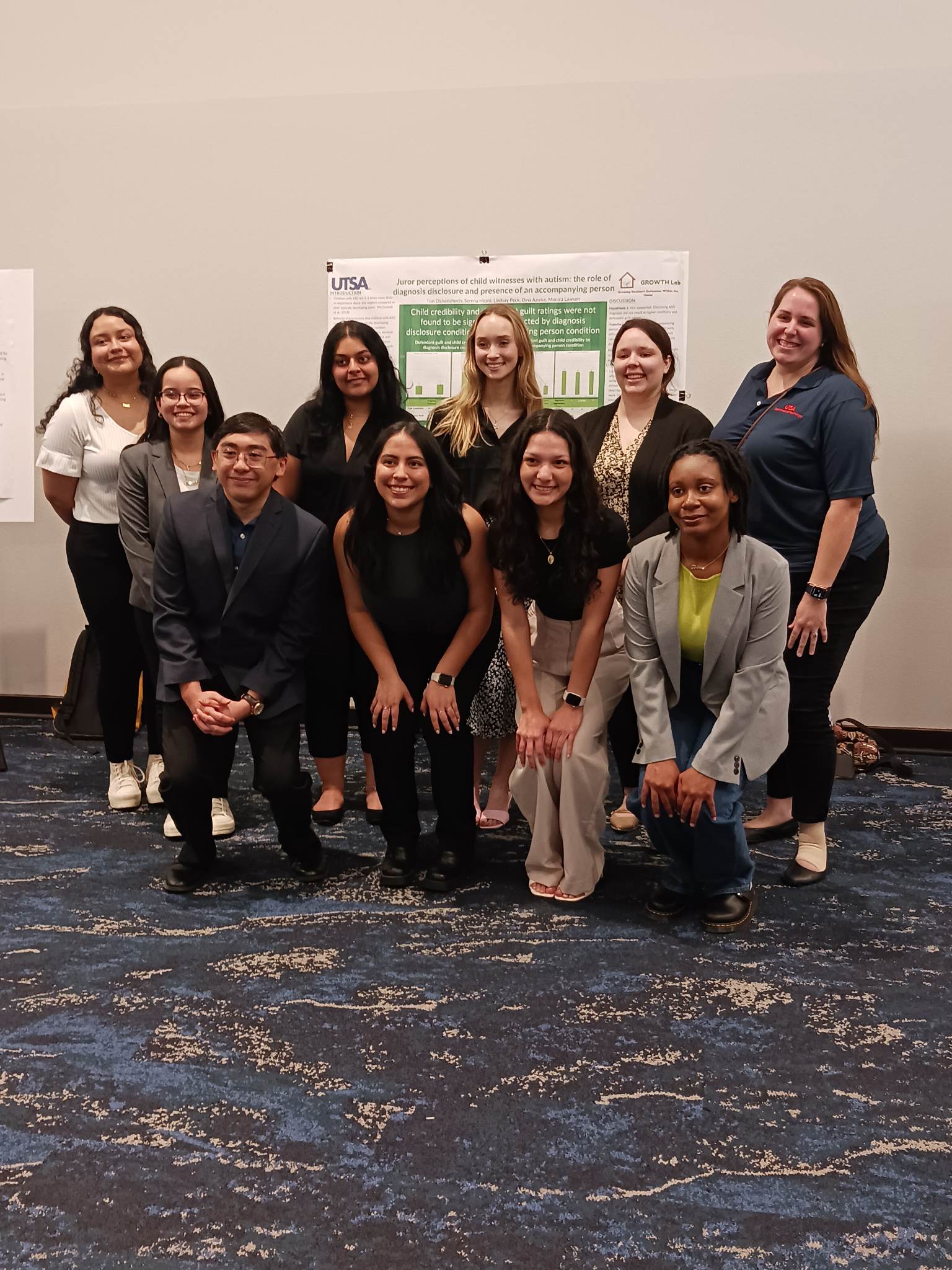Posted on January 6, 2025 by Amanda Cerreto

Holland with research team
Psychology doctoral candidate Tori Holland will receive a 3-year, $180,000 graduate research fellowship from the National Institute of Justice (NIJ). The funding will support her project, “Jury Deliberations of Child Witnesses.”
Holland began her research in 2022 with a $1,500 competitive grant from the American Psychology-Law Society. Like her current project, the pilot study examined juror perceptions and deliberations in a child sexual abuse case. By simulating the jury deliberation process, this novel study will advance legal practice and policy by bringing research attention to child witnesses.
Her project, anticipated to launch this spring, entails gathering a group of participants to watch testimony of a child sexual abuse case with a child testifying during a cross and a direct examination. After watching the video, the participants will deliberate and decide if the alleged perpetrator is guilty or not guilty. Thanks to the Comal County courthouse staff in the Bulverde Annex with the generous permission of Judge James ‘Rick’ Walker in comal county precinct #2, over the winter break, filming took place in an actual courtroom setting with child actor Katherine Threm, and actors Antonio Zubillaga, Zach Mascorro and Samantha Makley.
“I'm really interested in the conversations that are happening in the jury room,” Holland said. “What details from the testimony will jurors decide is important in their final decision? How many times will jurors change their views throughout the deliberation process?”
Holland’s work at UTSA is primarily conducted through the GROWTH Lab under the guidance of Monica Lawson, assistant professor of psychology. When the pilot study launched, Holland and her dedicated team of undergraduate students recruited volunteers and participants from UTSA to act as mock jurors. With this new funding, the study will expand to a community sample.
Students at the GROWTH lab, who are majoring in psychology, criminal justice, public health and more, are hard at work transcribing the videos from the pilot study. The deliberations are watched and each word is written down, line for line. They also account for nonverbal behaviors, like head nodding, arm-crossing and more. These transcripts are cross-referenced with excel sheets containing codes for each behavior.
 “When I first started conducting research in the GROWTH lab, I coded data for nearly two years,” Holland recalls. “It’s a long process and you need to be reliable, but the information we can gather from these conversations will be well worth it.”
“When I first started conducting research in the GROWTH lab, I coded data for nearly two years,” Holland recalls. “It’s a long process and you need to be reliable, but the information we can gather from these conversations will be well worth it.”
Lawson added, “Tori has been an instrumental leader in the GROWTH Lab for many years. Her outstanding scholarship has been recognized by many organizations. Securing the Graduate Fellowship from the National Institute of Justice further cements Tori as a rising scholar in the child witness field.”
As she expands her pilot study for this new project, Holland will recruit a more diverse pool of participants to gather data that is more realistic than that of the pilot study.
“I will be recruiting jury eligible members from the San Antonio community,” Holland explained. “This will provide a sample of individuals who more closely represent people actually selected as jurors compared to student populations.”
Holland is particularly excited to contribute to a field and topic where current literature is scarce. While there are studies on jury deliberations, there are very few, if any, about child witnesses.
While the main goal of this project is to educate citizens and justice officials on variants in juror deliberations, Holland can see how this study can serve as an offshoot for other projects.
“We can write so many different papers from just the data that we're getting — there are so many ways of looking at these conversations,” Holland said. “I’m also going to look at individual differences in jurors that may contribute to why jurors act differently and how it affects the deliberation process.”
Holland hopes that her research will help ensure the best outcome for those at the center of these cases.
“I want to be able to target any misinformation and figure out what education we can provide to make it so that children have a fair chance in these trials,” Holland said. “I really want to have data to determine if juror perceptions are aligning with the witnesses’ actual abilities and then take it from there.”
Jury deliberation sessions for this study are anticipated to start in the late Spring.

